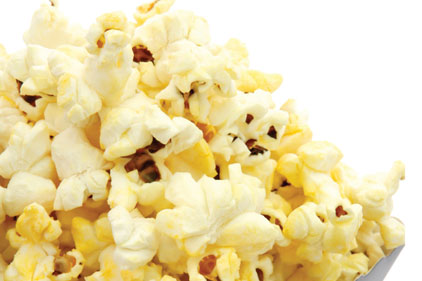Popcorn Found to be Rich in Antioxidants

"The hull is where the most nutritional goodies (polyphenols) are -- not the white fluffy part," says chemistry professor Joe Vinson, senior author of the study, which was partially funded by a popcorn company. Vinson also has studied chocolate, coffee, spices and cereals. The popcorn findings were presented at a meeting of the American Chemical Society in San Diego.
Vinson says polyphenols are concentrated in hulls because popcorn does not have a lot of water and because it is 100% whole grain. Some other foods that have polyphenols, such as fruits and vegetables, contain a lot more water.
Popcorn is usually minimally processed, he says. "We know whole grains are good for us in fighting a number of chronic diseases, but we don't know why yet. People thought it was just the fiber that made popcorn a healthful choice, but in my opinion, it's the combination of fiber and polyphenols."
Fruits and vegetables also contain polyphenols, along with vitamins and minerals not found in popcorn, he says. "I don't want people to think they can just eat popcorn to get all the polyphenols they need. I don't want them to think of popcorn as an alternative to fruits and vegetables."
Researchers are still investigating the effect of polyphenols on the body, Vinson says. "Just measuring something in the food is easy to do. It creates some information, but the proof in the pudding is what happens in the body."
From the March 26, 2012, Prepared Foods’ Daily Update
Looking for a reprint of this article?
From high-res PDFs to custom plaques, order your copy today!





